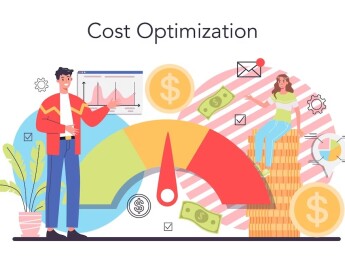Introduction
Accounting plays a fundamental role in every aspect of business and finance. It serves as the language of financial transactions, providing critical insights into an organization's financial health and performance. By recording, summarizing, and analyzing financial data, accounting enables informed decision-making, effective resource allocation, and strategic planning. Beyond financial reporting and compliance, it facilitates transparency and accountability within organizations, fostering trust among stakeholders. Whether in small businesses or multinational corporations, a solid understanding of accounting principles is essential for ensuring financial stability, operational efficiency, and sustainable growth.
Certified Management Accountant (CMA)
- Summary: The CMA certification is globally recognized and focuses on financial planning, analysis, control, and decision support.
- Duration: Typically takes 6-12 months to complete.
- Costs: Course fees range from AED 10,000 to AED 15,000.
- Rating: Highly rated for its practical application in management accounting.
- Completed students: Thousands globally, specific local numbers not disclosed.
- Language: Primarily English.
- Level: Intermediate to Advanced.
What does a CMA Course teach you? The CMA course teaches financial planning, analysis, control, and decision support. It focuses on strategic management accounting skills essential for business decision-making.
Who should take CMA course? Professionals aspiring to enhance their management accounting skills, pursue careers in financial planning and analysis, or seek advancement in corporate finance roles should take the CMA course.
Why should you take CMA course? Taking the CMA course enhances career prospects by providing globally recognized credentials in management accounting. It equips individuals with skills to drive financial performance and strategic decision-making within organizations.
Association of Chartered Certified Accountants (ACCA)
- Summary: ACCA is a comprehensive qualification covering accounting principles, financial reporting, audit, and taxation.
- Duration: Varies, but generally 2-3 years to complete all exams.
- Costs: Total costs can range from AED 20,000 to AED 30,000.
- Rating: Well-regarded for its global recognition and breadth of subjects.
- Completed students: Numerous graduates worldwide, specific local data unavailable.
- Language: English.
- Level: Beginner to Advanced.
What does an ACCA Course teach you? The ACCA course covers comprehensive accounting principles, financial reporting, audit, and taxation, preparing individuals for roles in public practice, industry, or the public sector.
Who should take ACCA course? Aspiring accountants, finance professionals, auditors, and consultants aiming for a thorough understanding of international accounting standards should pursue the ACCA course.
Why should you take ACCA course? ACCA offers global recognition and a wide range of career opportunities in accounting and finance. It equips individuals with in-depth knowledge and skills to navigate complex financial landscapes.
Chartered Financial Analyst (CFA)
- Summary: The CFA program focuses on investment management, financial analysis, and portfolio management.
- Duration: Typically takes 3-4 years to complete all three levels.
- Costs: Course fees can total around AED 30,000 to AED 40,000.
- Rating: Highly esteemed for its rigor and relevance in finance and investment sectors.
- Completed students: Thousands globally, specific local numbers not disclosed.
- Language: English.
- Level: Advanced.
What does a CFA Course teach you? The CFA course focuses on investment management, financial analysis, and portfolio management, preparing individuals to become investment professionals in various sectors.
Who should take CFA course? Individuals interested in careers in investment banking, asset management, financial analysis, or portfolio management should undertake the CFA course to deepen their financial expertise.
Why should you take CFA course? The CFA designation is highly esteemed in the finance industry, providing rigorous training and credentials necessary for advancing careers in investment management and financial analysis.
Certified Public Accountant (CPA)
- Summary: CPA covers auditing, attestation, financial accounting, and reporting for public accountants.
- Duration: Preparation courses vary, but generally 12-18 months.
- Costs: Course fees range from AED 15,000 to AED 25,000.
- Rating: Valued for its focus on US GAAP and IFRS standards.
- Completed students: Specific local data not disclosed, but widely recognized globally.
- Language: English.
- Level: Intermediate to Advanced.
What does a CPA Course teach you? The CPA course covers auditing, attestation, financial accounting, and reporting, focusing on US GAAP and IFRS standards essential for public accountants.
Who should take CPA course? Aspiring public accountants, auditors, tax professionals, and finance executives seeking expertise in financial reporting and compliance should pursue the CPA course.
Why should you take CPA course? The CPA designation is widely recognized globally, offering opportunities for career advancement in public accounting firms, corporate finance, government agencies, and beyond.
MBA Accounting and Finance at Holistique Training
- Summary: Accurate accounting and finance processes, alongside skilled employees and efficient systems, are vital for business profitability. Understanding your accounting strategy helps in making informed financial decisions and staying competitive. In these roles, individuals manage taxes, control spending, mitigate risks, and strategize for growth based on comprehensive business insights.
- Duration: 5 days
- Costs: Course fees range from £ 3850 to £ 4000 .
- Language: English.
- Level: Advanced.
What does an MBA Accounting and Finance Course teach you? The MBA Accounting and Finance course emphasizes advanced accounting principles, financial management strategies, and leadership skills tailored for business executives.
Who should take MBA Accounting and Finance course? Experienced professionals, business managers, and executives aiming to deepen their financial acumen, strategic decision-making abilities, and leadership skills should enroll in this program.
Why should you take MBA Accounting and Finance course? This program equips individuals with advanced knowledge and skills to excel in senior financial roles, drive organizational growth, and enhance their career prospects in the competitive business environment.
Table: Summary of Best Accounting Training Courses in Dubai
Course | Duration | Costs | Rating | Completed Students | Language | Level |
Certified Management Accountant | 6-12 months | AED 10,000 - AED 15,000 | Highly rated for practical application in management accounting | Thousands globally | English | Intermediate to Advanced |
Association of Chartered Certified Accountants | 2-3 years | AED 20,000 - AED 30,000 | Well-regarded for global recognition and breadth of subjects | Numerous worldwide | English | Beginner to Advanced |
Chartered Financial Analyst | 3-4 years | AED 30,000 - AED 40,000 | Highly esteemed for rigor and relevance in finance and investment sectors | Thousands globally | English | Advanced |
Certified Public Accountant | 12-18 months | AED 15,000 - AED 25,000 | Valued for focus on US GAAP and IFRS standards | Widely recognized globally | English | Intermediate to Advanced |
MBA Accounting and Finance at Holistique Training | 5 days | £ 3850 - £ 4000 |
|
| English | Advanced |

























